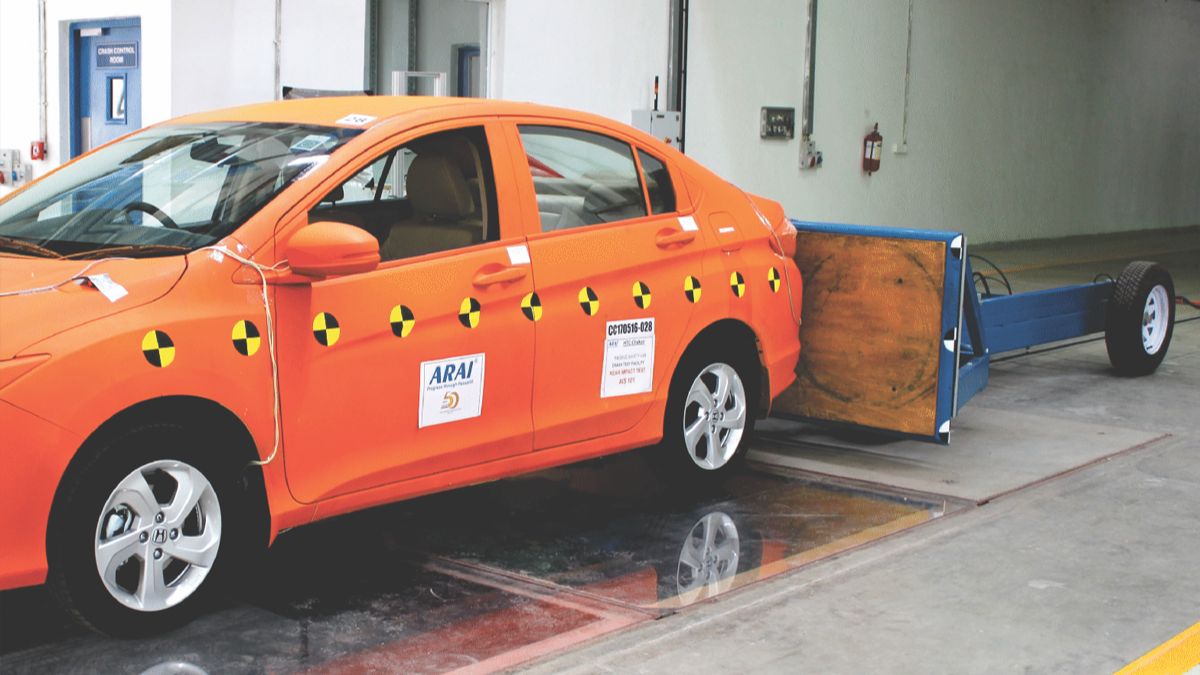- By Divanshi Sharma
- Wed, 13 Dec 2023 02:48 PM (IST)
- Source:JND
The Ministry of Road Transport and Highways introduced a new safety rating system for passenger cars, the Bharat NCAP. The Bharat NCAP was initially slated to begin from October 1, 2023. However, no results for the BNCAP tests have been out yet, indicating that the programme has been delayed. As we previously reported, the Indian NCAP programme will now come into effect from December 15 with over 30 models voluntarily being nominated by manufacturers for testing.
ALSO READ: Explained: Why Indian Cars Won’t Need GNCAP Safety Test Anymore?
Automobile manufacturers like Tata Motors, Maruti Suzuki, Mahindra, Kia and Hyundai have all nominated multiple models to be tested under the protocols of the Indian NCAP programme. The vehicles will be given star ratings for how well it performed during the test in two different types of categories - Adult Occupants Protection (AOP) and Child Occupants Protection (COP). The Bharat NCAP programme will not just test ICE vehicles but will also test CNG and electric vehicles produced in India.
Bharat NCAP crash tests will be conducted adhering to the Global NCAP standards and BNCAP programme has been designed keeping in mind India's unique driving conditions and regulations. The safety assessment for vehicles includes three key tests: the offset deformable barrier frontal impact test, the side impact test, and the pole side impact test. Moreover, Bharat NCAP has mandated the incorporation of safety features such as six airbags, electronic stability control (ESC), three-point seatbelts for all passengers, enhanced emergency braking systems, and other safety features to achieve a 5-star safety rating in the BNCAP tests.
ALSO READ: Bharat NCAP vs Global NCAP: Know Key Differences Between Two Safety Rating Systems
Bharat NCAP's new safety regulations will make it easier for Indian automobiles to compete in the international market. It will expand the country's auto industry's export potential and help the nation build a market for cars that prioritise safety.

